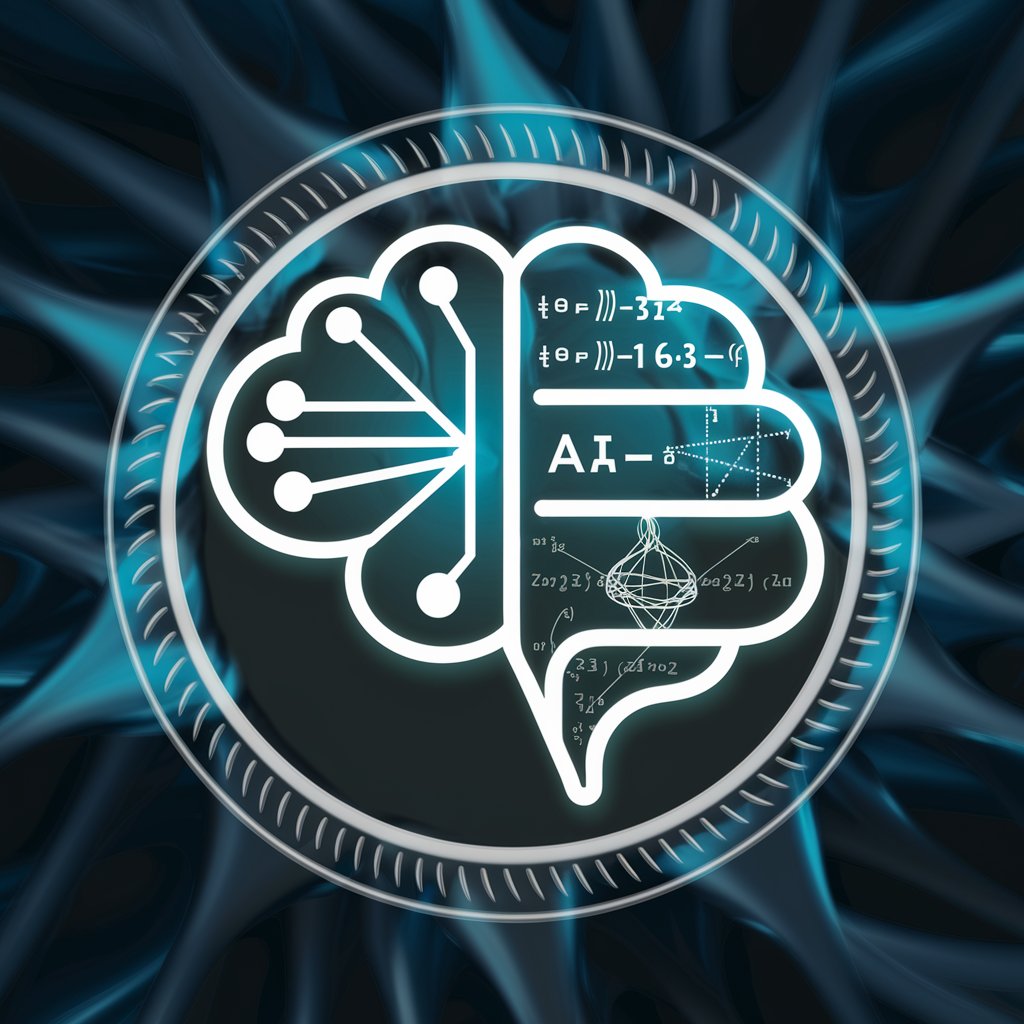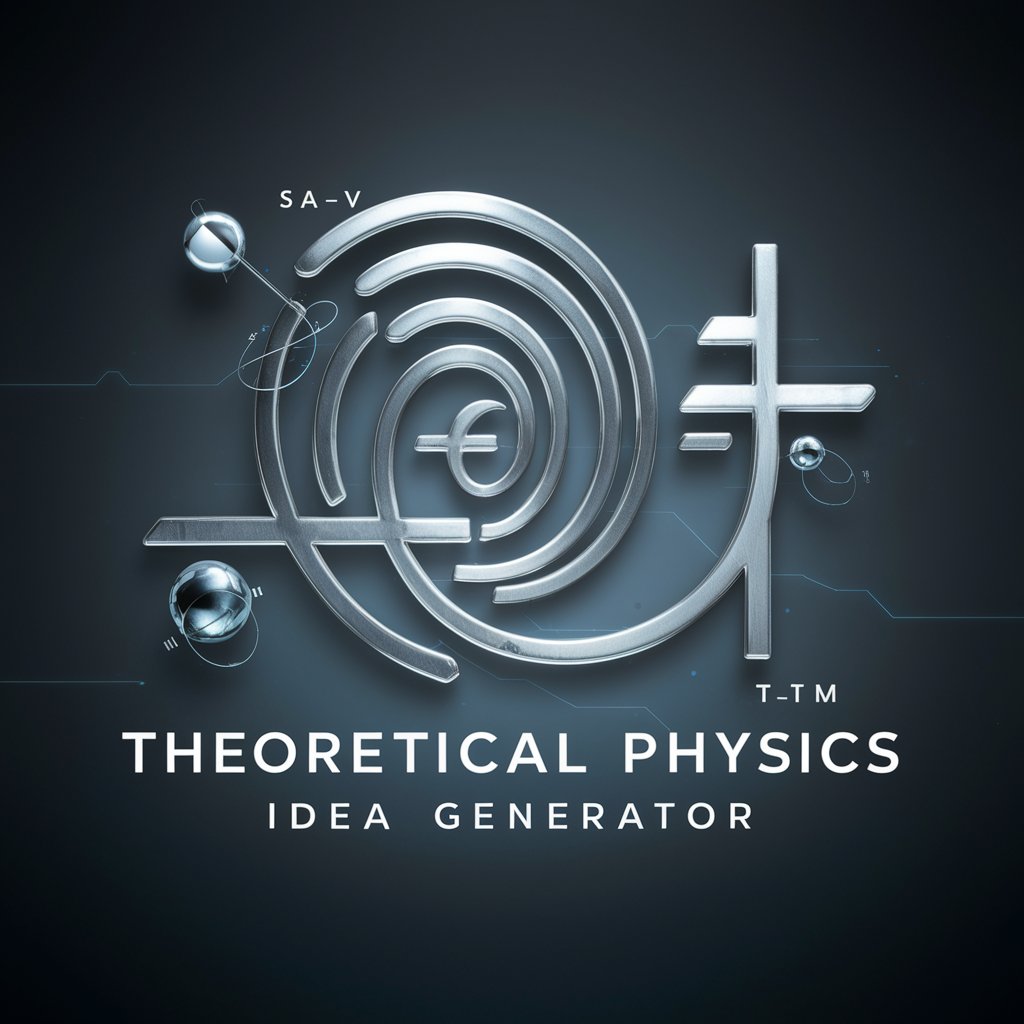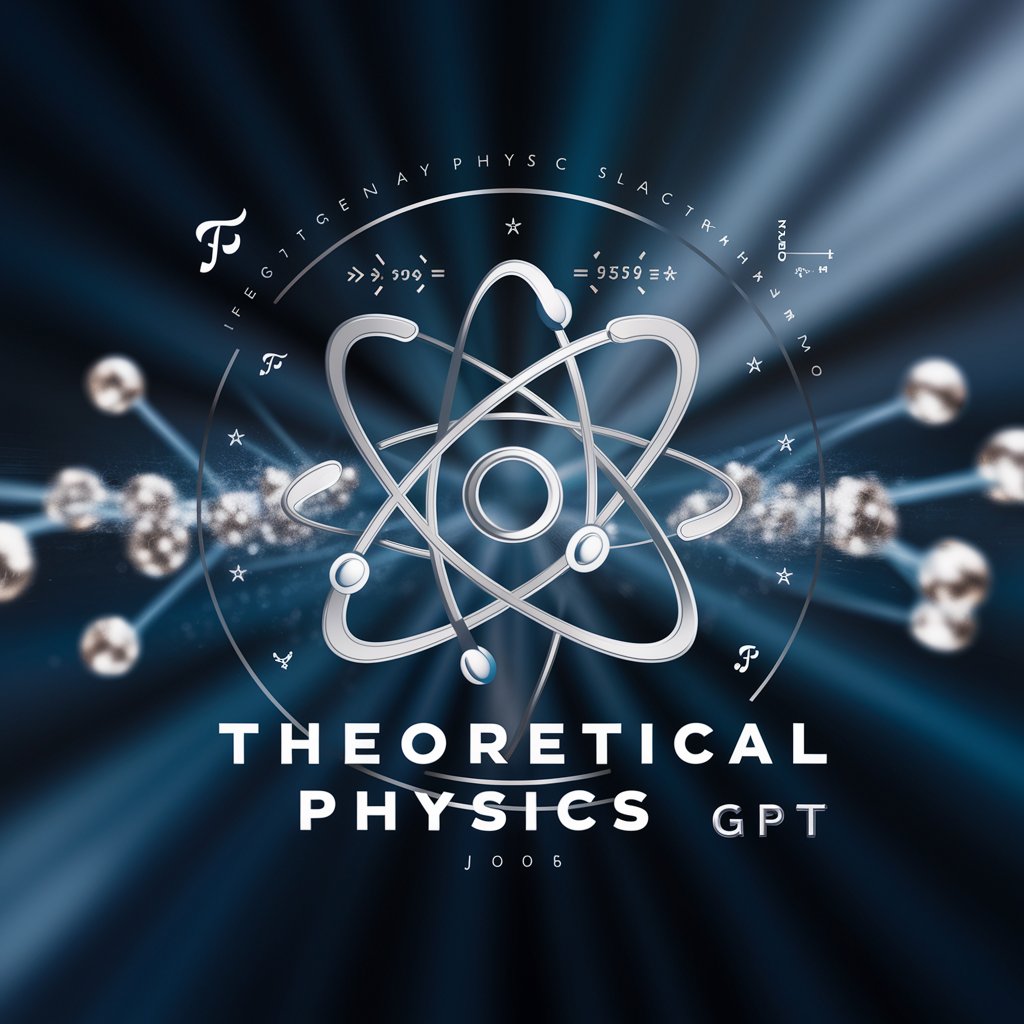theoretical physics Research Paper Analysis - Research Paper Analyzer

Welcome! Let's dive into the world of theoretical physics together.
Empowering Physics Research with AI
Summarize the key findings of the research paper titled
Explain the methodologies used in the study about
Discuss the implications of the theoretical concepts presented in
Analyze the potential impact of the discoveries in the paper
Get Embed Code
Overview of Theoretical Physics Research Paper Analysis
Theoretical Physics Research Paper Analysis is a specialized tool designed to assist in the digestion and understanding of complex scientific papers, specifically in the field of theoretical physics. It is engineered to dissect dense academic content, extracting and clarifying key findings, methodologies, and implications. The purpose is to make advanced theoretical concepts accessible to a broader audience, including those without specialized knowledge in physics. For example, it can transform a detailed study on quantum mechanics into a comprehensible summary highlighting main results, experimental approach, and theoretical significance, thus bridging the gap between expert research and educational outreach. Powered by ChatGPT-4o。

Core Functions of Theoretical Physics Research Paper Analysis
Summarization of Complex Content
Example
Condensing a 30-page research paper on string theory into a concise summary that outlines the hypothesis, research methodology, key results, and potential implications.
Scenario
A physics educator uses the summary in a classroom setting to introduce advanced concepts to students in an understandable way.
Analysis of Research Methodologies
Example
Evaluating the methods used in a particle physics experiment to assess the replicability and reliability of the results.
Scenario
A peer reviewer uses the analysis to provide critical feedback on a submitted manuscript, focusing on the robustness of the experimental design and the validity of the conclusions drawn.
Clarification of Theoretical Implications
Example
Explaining how new findings in cosmology, such as measurements of dark energy, could alter our understanding of the universe's expansion.
Scenario
A science communicator uses this information to write an article for a popular science magazine, aiming to explain new theories in cosmology to the general public.
Target User Groups for Theoretical Physics Research Paper Analysis
Academic Researchers
Researchers who are either directly involved in theoretical physics or in adjacent fields can use the service to stay abreast of developments, prepare for research projects, or conduct literature reviews more efficiently.
Students and Educators
This group benefits by gaining a clearer understanding of complex topics that can then be used for educational purposes, such as in lectures or student assignments, helping to simplify the introduction of advanced concepts to newcomers.
Science Communicators and Journalists
These users utilize the analyses to craft detailed, accurate articles and reports for the public or specific audiences, making cutting-edge theoretical physics research accessible and understandable to non-specialists.

Using Theoretical Physics Research Paper Analysis: Step-by-Step Guide
Start your free trial
Visit yeschat.ai for a free trial without login, also no need for ChatGPT Plus.
Choose a research paper
Select a theoretical physics research paper you wish to analyze. Ensure the paper is in a compatible format such as PDF or text-based documents.
Upload your document
Use the upload feature to provide the research paper. The tool will process the text, preparing it for analysis.
Analyze the content
Utilize features like key findings extraction, methodology identification, and implication analysis to understand complex scientific concepts.
Review the insights
Explore the generated insights and summaries. Use these analyses to support your academic work, research, or personal learning.
Try other advanced and practical GPTs
Pro Wrestling RPG
AI-powered pro wrestling storytelling.

Wrestle Trivia Challenge
Dive into wrestling history with AI.

GeoGuesserGPT
AI-powered geographic location discovery

NVCBot
Transform Words into Understanding

Industrial & Logistics Expert
Streamlining Industry with AI

Emoji master
Converse with Creativity, Powered by AI

Quantum Theoretical Model Builder
Exploring Quantum Realities with AI

Theoretical Physics Idea Generator
Igniting creativity in physics research

Theoretical Physics
Explore Physics with AI Power

Theoretical Space Physics Developer
Explore the cosmos with AI-powered modeling

Algorithms
AI-powered tool for algorithm analysis

Strategic Procurement and Vendor Relations Manager
Optimize Procurement with AI Power

Frequently Asked Questions about Theoretical Physics Research Paper Analysis
What types of documents can I analyze with this tool?
The tool is designed to analyze scholarly articles, specifically in the domain of theoretical physics. It supports various document formats like PDF and text files.
How does the tool extract key findings from research papers?
Using advanced NLP techniques, the tool identifies and summarizes critical findings, focusing on novel theories, experimental results, and theoretical implications presented in the papers.
Can this tool help me write a literature review?
Absolutely. By extracting key insights and methodologies from multiple papers, it provides a structured overview that can serve as a solid foundation for a comprehensive literature review.
Is there a limit to the number of papers I can analyze?
While there might be limitations based on your subscription plan, typically, you can analyze a significant number of papers, making it ideal for extensive research projects.
What makes this tool unique for theoretical physics research?
This tool is uniquely calibrated to understand complex theoretical physics terminology and concepts, making it particularly valuable for researchers and students in this field.
